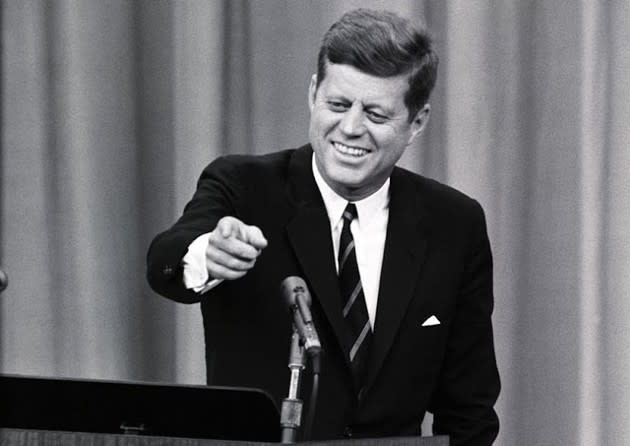Trump Time Capsule #21: 'Pull Their Credentials'

Nothing like this has happened before in modern times.
Trump Time Capsule #21, June 13, 2016. Pull Their Credentials.
- When John F. Kennedy grew unhappy with coverage by the conservative New York Herald Tribune, he cancelled the White House subscription to the paper.
- When Richard Nixon grew unhappy with coverage by the Woodward-and-Bernstein era Washington Post, which was in the process of helping drive him from office, he talked privately about how to hurt the Post economically in the long run. But he did not propose removing their press credentials.
- When Donald Trump grew unhappy today about an objectively accurate story in the Washington Post — the story made the same point as David Graham’s story today on our site, and mine: namely, that Trump was calling President Obama a traitor — he pulled the Post’s press credentials and banned it from further campaign coverage. As he has done for many other publications.
Recommended: The Narcissist
Nothing like this has happened before.
***
All politicians go through stages of greater and lesser annoyance with the press, and nearly all are more- and less-cooperative with outlets they think will treat them well or poorly. All try to conceal certain things and manage their public image. All play favorites. But modern candidates and presidents have assumed that they had to put up with the press as part of the basic bargain of public life, much as people producing plays or movies, or publishing books, put up with the annoyance of sometimes-hostile reviews, as part of the basic bargain of performing in public. Trump’s idea of the basic bargain of seeking great power is different.
Read more from The Atlantic:
This article was originally published on The Atlantic.
